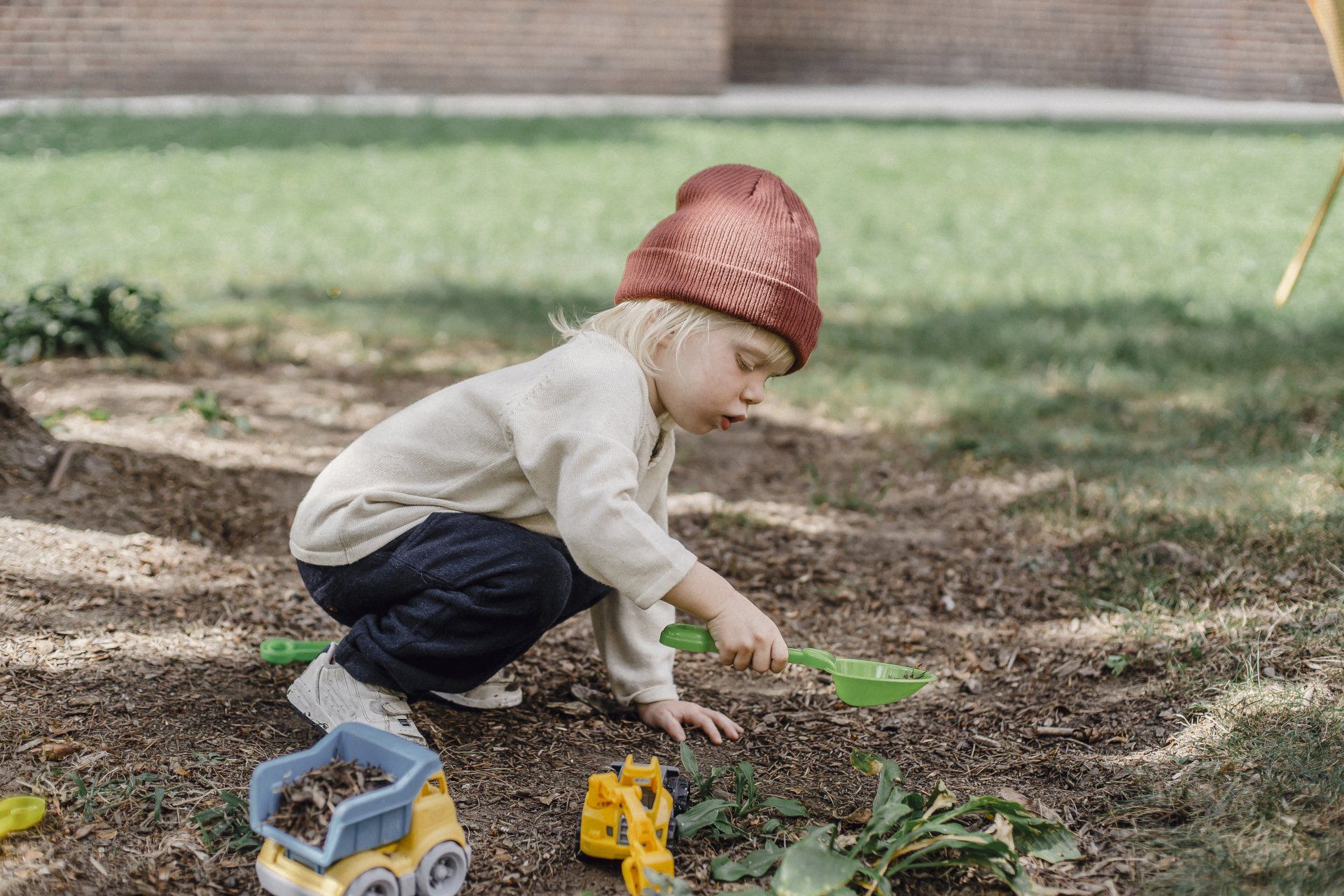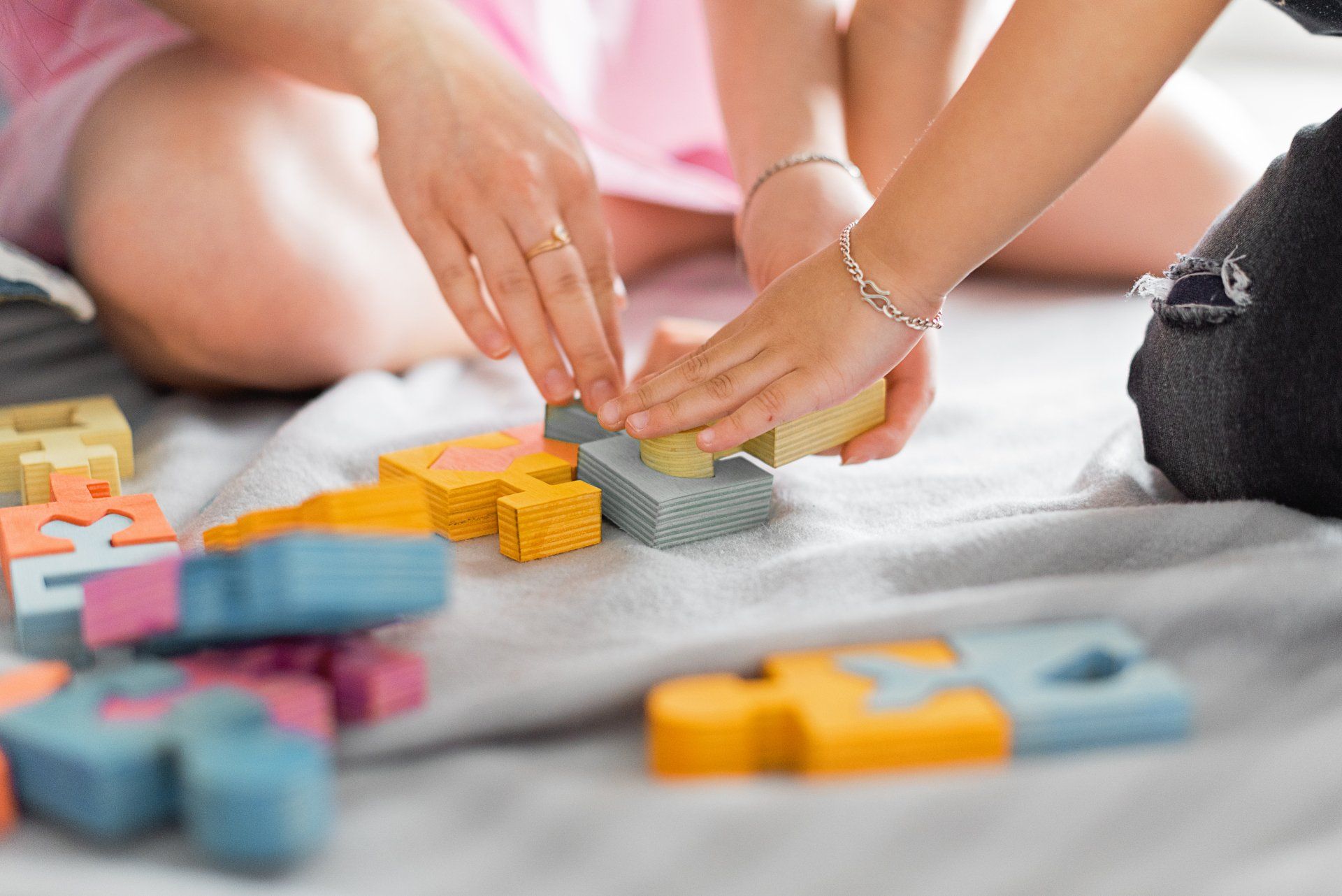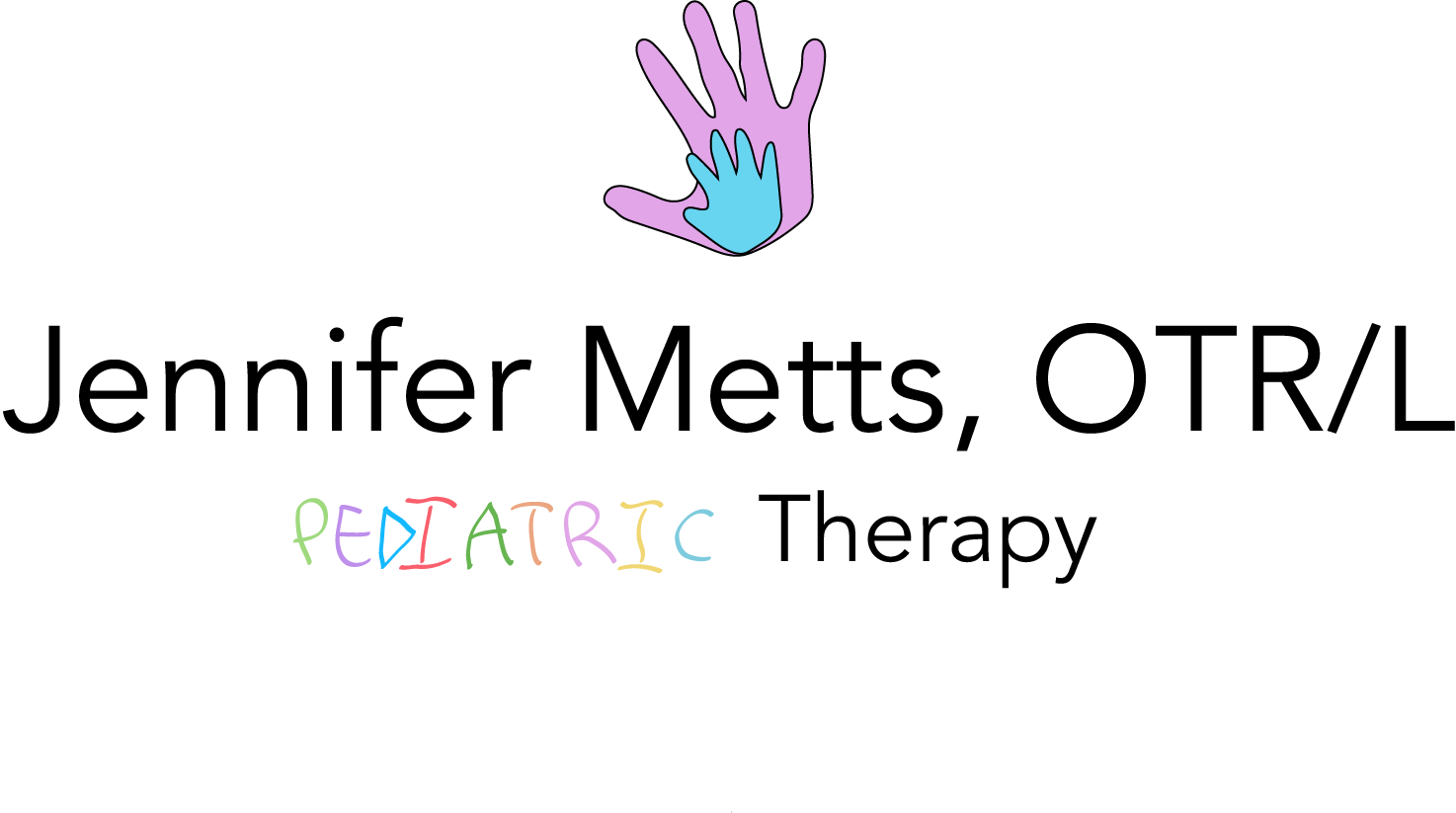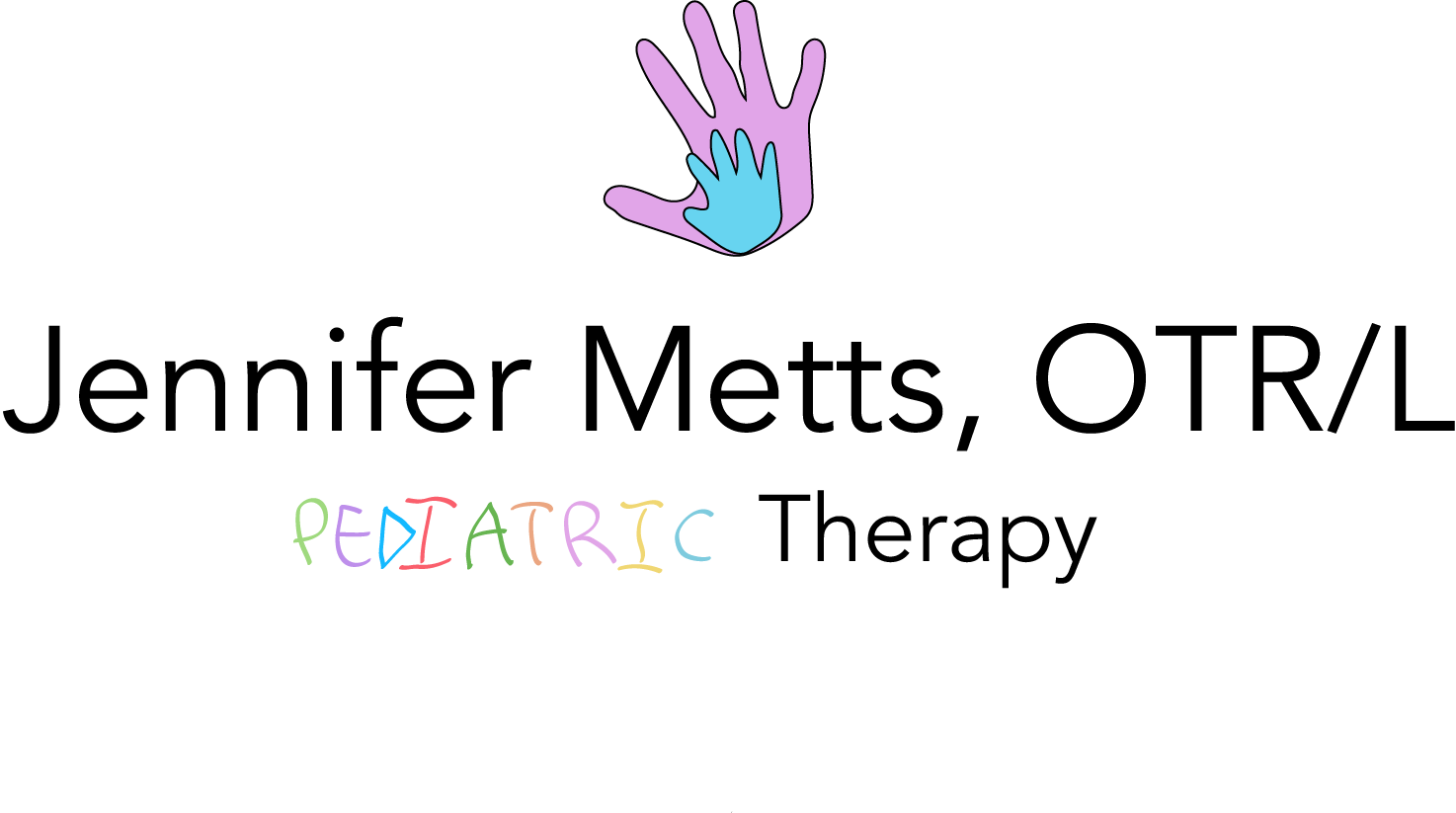
Blog
Pediatric occupational therapy resources for children and families.
Browse our blog for resources and information about occupational therapy services for children.
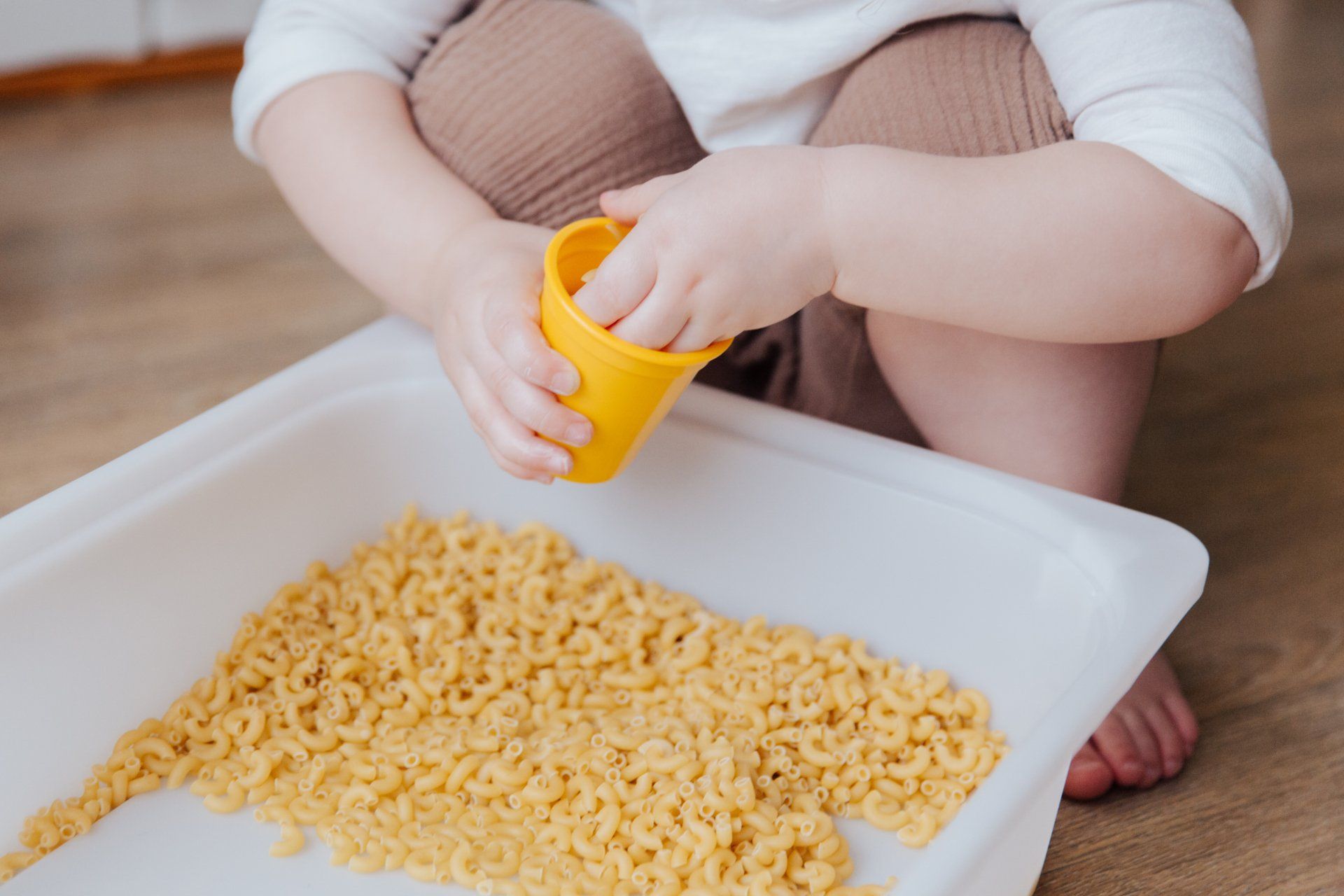
By Jennifer Metts
•
August 31, 2022
The Child with Tactile Dysfunction (sense of touch) has some of the following symptoms: _avoids being touched on the face _dislikes being held _has difficulty with grooming (cutting hair and nails) _dislikes having hair washed _dislikes taking a shower _may react aggressively when touched unexpectedly _dislikes when touched even in a friendly way _dislikes being kissed _avoids messy play _avoids going barefoot _prefers long sleeves and pants even when the weather is hot _is excessively ticklish _withdraws from situations _avoids sitting close to other children The Child with Vestibular Dysfunction – high tolerance to movement has some of the following symptoms: _seems “on the go” _has difficulty sitting still _needs to keep moving in order to function _has difficulty paying attention _craves intense movement experiences such as jumping on bed and furniture _takes excessive risks during play _seems accident-prone _does not get dizzy easily _enjoys spinning for long periods of time The Child with Vestibular Dysfunction – Gravitational Insecurity has some of the following symptoms: _becomes anxious when feet leave the ground _has a great fear of falling _is fearful of climbing _avoids playground equipment _dislikes having head upside down or tilted backwards _avoids jumping activities _is very cautious when going up and down stairs _seems slow at new movements _avoids to walk along uneven surfaces The Child with Proprioceptive Dysfunction has some of the following symptoms: _has difficulty with body awareness _has difficulty planning new movements _has difficulty knowing where his body is in relation to others and objects _chews constantly on objects _stamps feet on the floor when walking _deliberately crashes into objects _holds pencils too lightly _excessively presses down on paper when writing _has difficulty with handwriting and drawing _uses a lot of force when playing with toys and may break them _has difficulty lifting objects The Child with Visual Processing Dysfunction has some of the following symptoms: _difficulties staying within lines when coloring or writing _complains of seen double or blurred _has difficulty putting puzzles together _has difficulty copying from books _has hard time finding something in a drawer _has difficulty following a moving object _omits words when reading _may seem “disorientated” _has difficulty with fine motor tasks _does not understand concepts such as right/ left, up/down _reverses letters and numbers _is uncomfortable by moving objects and people The Child with Auditory Processing Dysfunction has some of the following symptoms: _is easily distracted with noise _has difficulty paying attention _seems to misunderstand what is said _becomes upset in noisy places _seems difficult to understand when speaking _has difficulty looking and listening at the same time _speaks in a loud voice _has a poor vocabulary _has difficulty with reading _covers ears to protect from sound The Child with Olfactory Dysfunction has some of the following symptoms: _reacts negatively to, or dislikes smells that other children do not notice _refuses to eat certain foods because of their smell _is a picky eater _is nauseated by bathroom odors _is bothered/irritated by smell of perfume or cologne _is bothered by smell in supermarket _may refuse to play with toys because of the way they smell The Child with Gustatory Dysfunction has some of the following symptoms: _gags easily with food textures _avoids certain tastes _is a picky eater _craves certain foods _may chew on or lick nonfood objects _mouths objects _has difficulty with sucking, chewing, and swallowing The Child with Sensory Processing/Modulation Disorder will exhibit some of the following Social/ Emotional responses: _low self-esteem _low self-confidence _seems anxious _has difficulty tolerating changes in routines _has strict routines _has difficulty playing with other children _is getting upset easily _does not persist with tasks/ gives up easily _is stubborn or uncooperative _has frequent temper tantrums _has difficulty making friends _does not express emotions _needs adult guidance to play _ask for adult reassurance _has difficulty interacting with other children _jumps from one activity to another
Begin Your Child’s Occupational Therapy Journey
Work Hours
- Mon - Fri
- Appointment Only
- Sat - Sun
- Closed
© 2025
All Rights Reserved | JENNIFER METTS, OTR/L | Website by Hyport Digital

